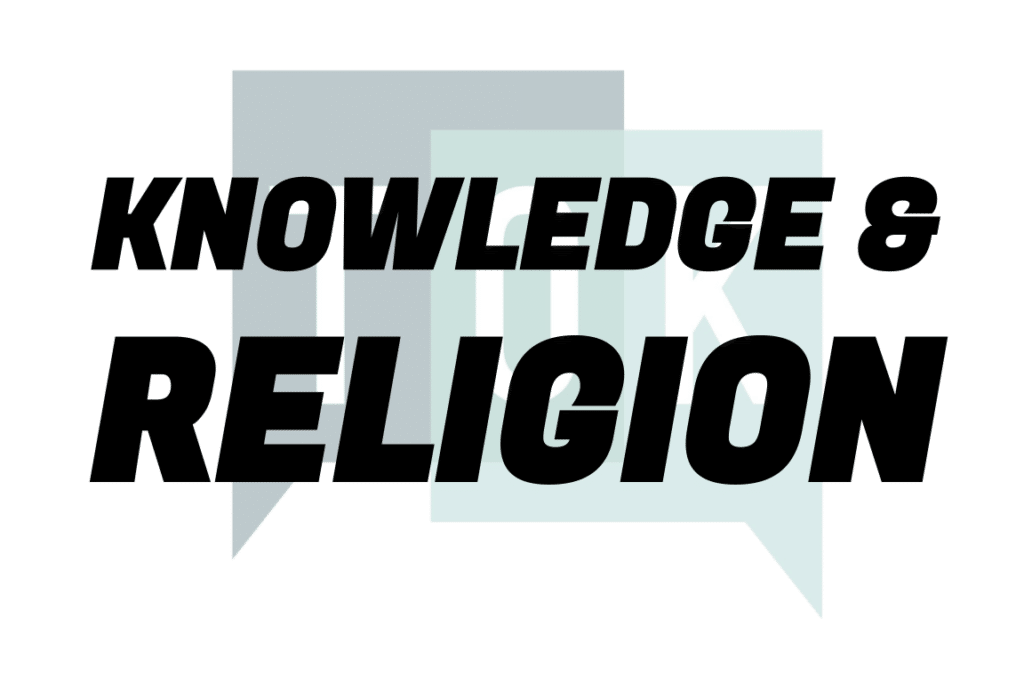
Welcome to the knowledge & religion section of the site. This page will help you to take ownership of religion via a quick overview, and four padlets that offer you quotes, knowledge questions, real-world issues, and key thinkers relating to this optional theme.
You can use this content both to understand this component of TOK, and support discussions and arguments that you offer in your essay and exhibition.
Knowledge & religion: a quick overview
The optional theme of knowledge & religion delves into the relationship between religious belief systems and the acquisition, interpretation, and dissemination of knowledge. It invites students to explore how faith, spirituality, and religious traditions shape human understanding, and how knowledge, in turn, informs and challenges religious perspectives. As we navigate this theme, we encounter several key concepts.
Culture plays a central role in understanding how religious beliefs are deeply embedded in the customs, traditions, and values of diverse societies. The concept of perspective highlights the unique lens through which individuals of different faiths perceive the world and seek knowledge. Values become essential as they reflect the moral and ethical dimensions inherent in religious teachings and their impact on behaviour.
Two influential thinkers in the realm of knowledge and religion are Martin Luther King Jr. and Karen Armstrong Wadud. Martin Luther King Jr., a prominent American civil rights leader, integrated his Christian faith with his advocacy for social justice and equality, illustrating the intersection of faith, ethics, and knowledge in his activism.
Karen Armstrong, a contemporary British author and religious scholar, explores the commonalities and shared wisdom among various religious traditions, fostering interfaith dialogue and understanding.
Contemporary issues related to knowledge and religion are both timely and impactful. Discussions on interfaith dialogue highlight the importance of mutual understanding and respect among different religious communities in an increasingly globalized world. Additionally, debates on religious extremism and fundamentalism underscore the challenges posed by radicalized interpretations of religious texts and their implications for global peace and security.
Knowledge & religion demands that students critically examine the interplay between faith and knowledge, appreciate diverse religious perspectives, and explore the ethical responsibilities associated with religious beliefs and practices. It emphasizes the significance of interfaith dialogue, cultural sensitivity, and ethical reflection in fostering a deeper understanding of the complex relationship between religion and knowledge.
1 QUOTES Who said “Prayer does not change God, but it changes him who prays”?
Explore these quotes on religion by a wide range of different thinkers. Which quotes are the most and least insightful? How they challenge our assumptions about religion? What do they reveal about links between religion and other aspects of the TOK course?
2 KNOWLEDGE QUESTIONS Do religious ideas require different categorisation?
Identifying and exploring knowledge questions (KQs) is at the heart of TOK, prompting us to reflect on our knowledge, evaluate whether it’s be based on a flawed or incomplete assumptions, and provide us with a focus point to improve our understanding of the world.
3 REAL-WORLD ISSUES What does Pastafarianism reveal about Church & State?
These examples will help you to understand how TOK ideas manifest in the real-world, take ownership of religion, link TOK to the latest global issues, and become an authentic critical thinker. They will also help you to justify and explore the discussions you offer in your essay and exhibition.
4 KEY THINKERS Does belief in an omnipotent God subjugate the individual?
The thinkers in this padlet will help you to consolidate your understanding of religion, and challenge your assumptions about the world. You can also draw on their ideas to support your essay and exhibition discussions, and add depth and authority to the claims you make about knowledge.

Subscribe to the free TOK newsletter!
Subscribe to our free newsletter, and collect fantastic examples to help you understand the key TOK ideas, support your essay and exhibition, and make you an authentic critical thinker.
You’ll encounter some of the most important thinkers from the past and the present, go beyond the headlines of contemporary events and issues around the globe, and see how TOK concepts manifest in the real-world. Subscribe HERE!